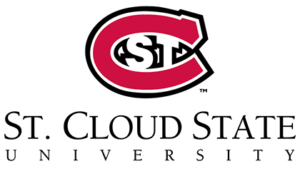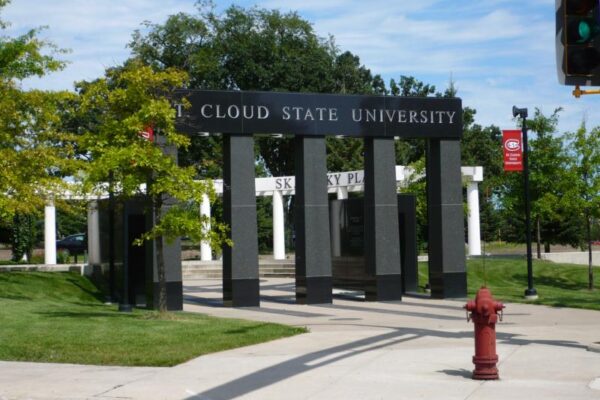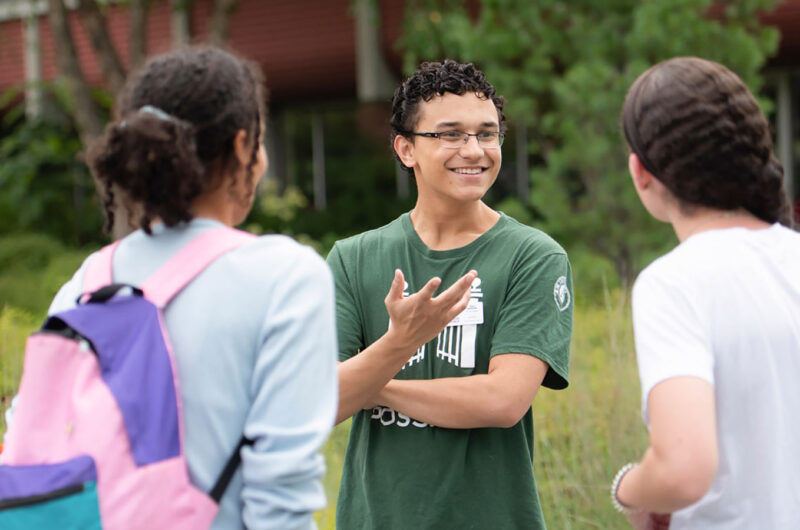A Q&A with Precious Palmer, assistant director of multicultural student services and College Possible program lead at St. Cloud State University.
Nearly 56 percent of college-bound seniors are first- generation students. Colleges and universities are championing first-generation students by providing additional support for them in their transition from high school to college.
 College Possible and St. Cloud State University partnered in the spring of 2016 to students from low-income and first-generation backgrounds through near-peer success coaching. In conjunction with College Possible’s coaching curriculum, campus program leads are responsible for managing the program on campus, connecting coaches to institutional resources, and leading trainings specific to the first-generation experience.
College Possible and St. Cloud State University partnered in the spring of 2016 to students from low-income and first-generation backgrounds through near-peer success coaching. In conjunction with College Possible’s coaching curriculum, campus program leads are responsible for managing the program on campus, connecting coaches to institutional resources, and leading trainings specific to the first-generation experience.
What is your position at St. Cloud State University? How long have you been working in higher education?
I am currently the assistant director of multicultural student services and have been working at St. Cloud State, professionally, for six years now.
What has your experience been like as a College Possible program lead?
It has been a learning experience for both College Possible and myself. Every year I grow in how I train and supervise the coaches; and every year there is a new batch of people joining the College Possible team. Together we get to know each other and figure out the different expectations for each program year. I’ve been working with College Possible since I started at St. Cloud State and as time progresses the program continues to get better and we learn how to make it the most successful it can be.
What new initiatives or strategies is St. Cloud State trying to help first-generation students?
For our first-generation, as well as our incoming freshman students, we have our Navigate system. The students who are on that platform are assigned a success team (i.e., an academic advisor, a financial aid counselor, and any other programs they may be associated with — Honors, College Possible, etc.). This is the third year we have had the Navigate system at St. Cloud State and because of that, the College Possible coaches have been able to become a lot more integrated into campus. Currently coaches have access to early alerts, which allows them to better support their students and connect them to resources and services on campus.
How have you prepared and trained College Possible success coaches to support first-generation students?
Every year I set up professional development training for the coaches and connect them to staff and departments all across the institution to make sure they have the necessary information and resources to support their students. They learn to utilize the different databases and settle into this new setting and role. Many of the coaches are St. Cloud State alumni so they are familiar with campus, but aren’t typically used to working with students. For the coaches who have never been to St. Cloud State, we ensure they are well integrated to campus culture, equipped to be a professional at SCSU, and are connected to the rest of the team. This enables the coaches to work together, successfully implement the College Possible program on campus, and be prepared to support all students.
How have you partnered and/or collaborated with College Possible in training coaches on supporting first-generation students?
Throughout this partnership College Possible has been responsive to our suggestions. They’ve encouraged us to communicate how we wish to tailor the coaching model in order to best support coaches and students, and meet the specific needs of our campus. At St. Cloud State, a majority of the College Possible cohort are students of color. As a result, a lot of the College Possible program at SCSU has been focused on learning how to connect with students of color and explain the benefits of having a College Possible coach to them. Over the years, St. Cloud State and College Possible have worked very closely to determine student eligibility requirements, recruit coaches that are best fit for our students, and identify the goals and initiatives we wish to accomplish throughout our partnership.
Is there any particular moment or memory related to the first-generation experience and success that sticks out to you?
My time at St. Cloud State has been filled with so many amazing stories and experiences that I can’t just pick one. I think what has been most powerful is when we connect with students who are at their most vulnerable point, establish a relationship and make them feel welcomed and valued on campus. It’s in those defining moments where a student may feel home sick, unsure of who to talk to, or feeling like they don’t belong, when the coaches and the College Possible program are extremely important. The transition from high school to college is very difficult, so it’s always very rewarding when students are excited that they have a coach and are eager to work with them.
By Sarah Calire

